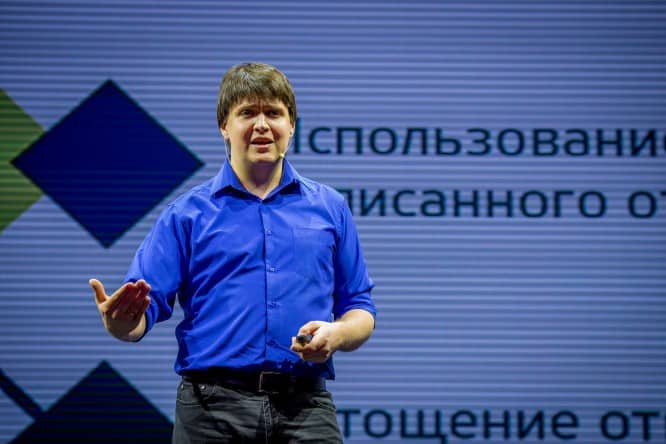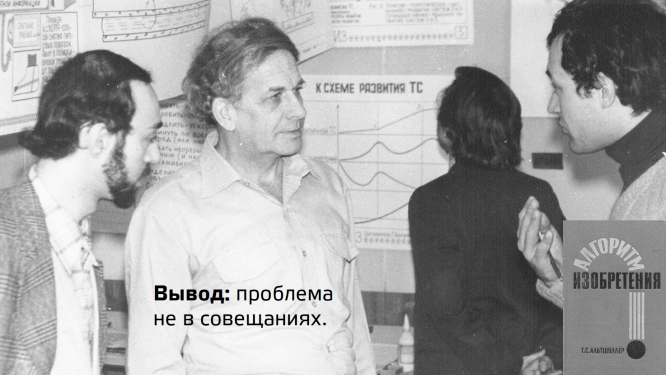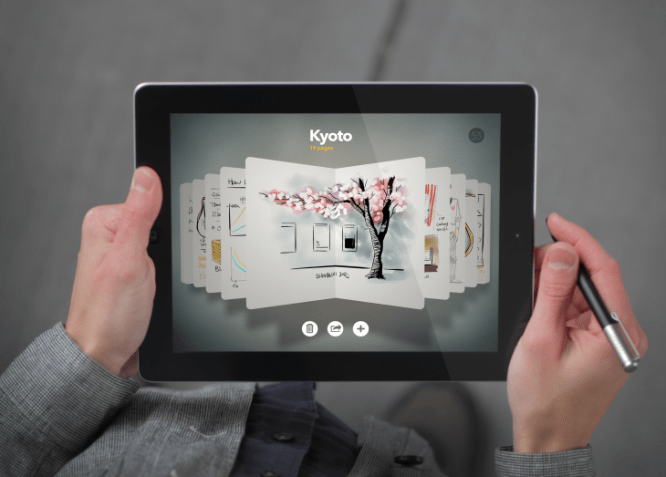People burn out if they don’t feel important. What to do about it?
People burn out if they don’t feel important. What to do about it?
Kesha Skirnevsky, co-owner of Zebrainy (“Skazbook”), talks about motivation in terms of the structure of the brain.

I ran a marketing department at a factory, founded a trailer studio, and now run Zebrainy, a company that develops educational projects for children. From my own experience, I know that people often get tired and burn out at work. But I have been studying the brain for a long time and figured out how to avoid this.
Until you know how the brain works, it seems to you that someone lives better and someone worse. You worry, “My life is so stressful, and that dude on the social network is positive and successful.” But the brain is not at all designed to make a person feel happy. On the contrary, each of us lives in a personal hell.

The brain grows unevenly throughout life: after 25 years, its neuroplasticity decreases, and the feeling of joy from life decreases. If the brain processes incoming signals quickly, we feel good, and if it needs additional energy, we feel bad. When neuroplasticity decreases, the brain exerts more effort, and we are less happy with the familiar things. Many at the age of 30 feel this crisis: even if a person is sailing on his yacht, his life is not high. He is in personal hell, just like you.
I’m not going to tell you how to deal with this hell, but I will help reduce the temperature of your colleagues’ frying pan.
How does burnout happen?
Let me explain it using my favorite song as an example. If you have a favorite song, you like it for a while, and then it starts to infuriate. Music and words are signals your brain receives. At first, he processes them quickly and easily, and then he will need additional energy. This burnout is not only about work, but also about relationships between people.
When a new signal enters the brain, such as facial features and voice timbre, the brain creates a response to process them. When you meet this person again, the brain will process the signals from him using the response it created the first time. Therefore, it will be easy for you to communicate with him. But if signals reach the brain too often, the response is depleted.
On a chemical level, this is easy to explain. Neurons, in order to conduct a signal, secrete special substances – neurotransmitters. Each time a neuron fires up, neurotransmitters are depleted. As a result, the brain in which the response has been formed will not be able to process the signal quickly and easily. Therefore, familiar people suddenly begin to enrage you.

Imagine that you have heard a remix of your favorite song that you once got tired of. You liked the remix because it is a combination of familiar music and new processing. Now your brain needs to build a new response.
The key to successful relationships with people at work is familiar plus something new
…
You need a system in which each person grows and becomes a source of new experiences for others. These can be courses within the company: master classes, personal development programs, increasing the complexity of tasks. Training employees is essential not only to improve their performance, but also to reduce stress in the team.
Flow
The person has long term memory and short term memory. Thoughts are in your short-term memory – your focus. You can think about 4-7 objects at the same time: if I list the numbers, after the fifth it will be difficult for you to remember them. Therefore, it is easier to perform the same type of actions than several different actions.
To build a harmonious work environment, you need to provide employees with a workflow – the execution of one narrowly focused task.
…
This can be writing documents, planning, selecting references. The day should be built on switching from one thread to another, but not on multitasking.
Objectives
Goals are short-term and long-term. At the beginning of the week, the employee should plan the work for each day, and then mark the completed tasks. Then he will understand what short-term goal he will achieve at the end of the week.
The long-term goal is why the employee goes to work at all.
…
A person wants to understand how being in the flow helps to achieve something more. Therefore, the company must speak about its mission and big goal. If there is no such goal, employees feel unnecessary.
Progress
The employee must see progress in the short and long term. For example, Zebrainy has weekly reports: each person on Monday morning writes what they have done in the past week. Just two or three sentences that provide a sense of progress.
Setting goals, explaining progress is a leader’s job.
…
It is important for subordinates to know that the company is moving in the right direction – towards a long-term goal. It depends on the leader: he must explain that the company reaches certain milestones thanks to the employees.
Leadership
An employee should be able to feel like a star if he does a job better than others.
Therefore, work tasks should be divided into small blocks in which such an employee can appear. If he makes extra effort, it will motivate you and his colleagues.
Promoting
Another way to communicate the value of a job is with a sense of shoulder.
Pair people together to achieve common goals.
…
They can be people from non-related professions, for example, a programmer with an artist, or a sound engineer with a manager. It is good when the manager and the employee solve problems together. It helps people feel better.
Switching
Any work of the same type depletes the response of the brain.
Employees must switch to alternative tasks.
…
For example, at Google, people spend one day to achieve goals that are not directly related to work. This helps to return to their tasks with renewed vigor.
Gamification

Nowadays, many people talk about gamification at work and perceive it as a whim. You can work the old fashioned way, but if you want to prevent burnout, think this way.
Game is brain hacking, it practically forces the brain to have fun.
…
Therefore, play-like work helps employees feel better and do more.
Convergence
Childhood is of great importance in our life. The brain grows to 90% by the age of 12 – it is during this period that a person’s preferences and views are formed.
If you do not know what happened to your colleague as a child, you will make erroneous assumptions about him.
…
Ask how your colleague’s childhood went: who he was friends with at school, how he communicated with his parents, what games he loved. If he had a dysfunctional childhood, he perceives the intonation of the parent much better. Through taking care of him, you will be able to convey information. If the employee had a good family relationship, he is used to logical communication. In this case, he does not need care, but the rationale for your decisions.
Do you know something about your colleagues that no one else knows? If you said no right away, then you didn’t even try to find out. If you thought even for a second and remembered something – everything is in order.
Respect
For the brain, the simplest signals to process are the person’s thoughts about himself. Therefore, we often overestimate our ideas and underestimate others.
The opinions and actions of other people are perceived as bad because the brain is spending extra energy on them.
…
To solve a problem, it is necessary to “load” the experience of his colleagues into the head of each employee.
We conduct internal master classes every 2-3 weeks. One of the employees shows how he does his job: for example, an artist draws for 1.5 hours and comments on his actions. The team begins to admire his work, and someone even proposes solutions. For example, a programmer might say, “If you do it a little differently here, it will be easier for us to integrate it into the project.” This practice helps to achieve mutual respect in the team.
TRIZ
As I said, a person works more efficiently when he solves problems alone or in pairs. Meetings are so popular because it’s a simpler cognitive load than solving personal tasks – nothing depends on employees, they feel relaxed and useless. Therefore, instead of regular meetings, we use TRIZ – Heinrich Altshuller’s theory of inventive problem solving.

Thanks to this theory, we quickly move into the area of effective solutions. It helps to combat slippage when employees are lazy and not thinking in meetings.
Learn to track the moment when a person becomes depressed, and try to bring him out of this state.
Pressure
Ask yourself if you believe in free choice. Let’s say you need to select object A or object B. If you selected object A, is there a reason why you chose it? If there is a reason, then there is no choice. It is impossible to break the causal relationship, your every action is predetermined.
You have an inner pressure that prompts you to do something, and an external pressure that corrects the action. For example, internal pressure may be experiences from childhood, and external pressure may be some social factors or people that influence you.
One of the most important pressures is social capital, the need to appear to other people more active, more successful, more effective.
…
We want to receive the maximum respect and recognition at home and at work. Therefore, if you are drinking with your boss at a corporate party, his pressure on you drops. It’s not so important for you to earn his respect.

Remember: a person acts under the pressure of the environment. When you’re trying to get an employee to get things done, you have to put pressure on them. It can be personal pressure, reporting, planning, social capital. Cancel corporate events if you want your employees to be motivated to work better and more efficiently.
Praise
Leaders have a problem: They often think they can judge people. But remember that we all live in a personal hell with our own problems and stress.
Scolding an employee and telling him that he is bad is a quick way to drown a person.
…
You can motivate employees using the techniques I have described. Praise the employee, even if you are about to fire him. A person works well if the fire of achieving the goal burns in him – do not extinguish this fire with abuse. Motivation in a company can be built without figuring out who is good and who is bad.
findings
So that people do not burn out and work with pleasure, several rules must be followed.
- Provide a workflow with similar tasks.
- Set short and long term goals.
- Show progress.
- Highlight leaders.
- Pair up to solve problems.
- Help switch to alternative tasks.
- Make the job look like a game.
- Learn more about your colleagues.
- Help learn from experience.
- Use TRIZ in meetings.
- Provide pressure.
- Praise.
Source: habr
…

